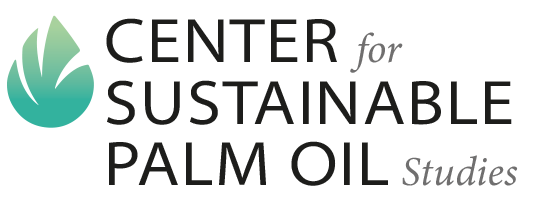
The European Union’s carbon border adjustment mechanism, due to be presented in June, is broadly perceived as a protectionist and unilateral move, according to a survey of decision-makers in China, India, Japan and other Asian countries.
The survey, released on Wednesday (10 March) by the Konrad Adenauer Foundation, sought to analyse perceptions of the EU’s planned carbon levy in eight Asian countries: Australia, China, India, Indonesia, Japan, Singapore, South Korea, and Thailand.
The results sound like a warning shot for the European Commission, which is working on its proposal, expected to be published in June.
“China will likely oppose the EU CBAM and there is a potential for the mechanism to spark a trade conflict,” says a summary of the survey. India, for its part, “perceives the EU CBAM strongly as protectionist, discriminatory towards developing countries, and contrary to international laws and agreements,” it adds.
In Japan, the steel industry has already begun opposing the plans, “and will likely continue to do so,” the survey found. And in Indonesia, perceptions of the EU levy “will likely be negative” and heavily influenced by the ongoing conflict with the EU over palm oil exports.
Christian Hübner, the lead author of the study at the Konrad Adenauer Foundation, says he was “not really surprised” by the findings of the survey, which was based on in-depth interviews with 70 experts ranging from academia, corporates, governments and civil society.
But, past the initial scepticism, he also insisted that not all perceptions were negative.
“On second thoughts, the same experts also expressed ideas for how the scheme could be implemented in practice. And some of them even said the benefits could be greater than the cost,” Hübner told EURACTIV.
The carbon border adjustment mechanism (CBAM) will be unveiled in June as part of a package of climate and energy laws aimed at cutting the EU’s emissions by 55% before the end of the decade.
“It’s a matter of survival” for EU industry, said Frans Timmermans, the European Commission’s climate chief, who warned about the risk of “carbon leakage” if companies were to leave Europe to avoid the cost of its emissions-cutting policies.
A question of acceptance
According to Hübner, the risk of carbon leakage is acknowledged by most respondents to the survey. And a few experts also said the carbon border levy could be an opportunity to develop new business models and work on low-carbon development. “So, there is also a positive perspective,” Hübner said.
The survey also tried to identify features that could improve the acceptance of the EU scheme towards Asian partners. A big question there is whether the EU is going to acknowledge regional carbon pricing initiatives which are either in place or are being planned across Asia.
China, for instance, has launched its carbon trading scheme in February as part of plans to peak emissions before 2030 and reach carbon neutrality by 2060.
“In China, what we found out – maybe not so surprisingly – is that they want their national Emissions Trading Scheme accepted as a corresponding carbon pricing mechanism. And I think this could be a starting point” for further discussions and greater acceptance of the EU levy, Hübner said.
Whether the EU scheme is accepted in Asia will depend chiefly on what the EU does with the revenues generated from the charge: if parts of it are redistributed to finance low-carbon projects in developing countries, acceptance will be higher. But if the revenues are redirected to the EU budget, it is likely to be perceived negatively, Hübner said.
Another factor of acceptance is whether the EU will leave trade partners time to adapt.
“For countries which are already in the process of launching an emissions trading scheme, the question is whether these countries should be fully covered by CBAM or whether there should be some kind of transition mechanism,” said Louis Mourier, a researcher at the Konrad Adenauer Foundation.
Another key factor of success or failure will be transparency in the policy-making process and the diplomatic efforts Europe will deploy to ensure its plans are well understood by trading partners.
According to the survey, this is currently one of the greatest weaknesses of the EU plan.
“The survey showed the EU already had discussions with some countries within the region regarding CBAM,” Hübner said. “However, this seems still to be at an early stage and has not received much attention yet,” he added.
In January, Chinese diplomats warned that “more consultations” were needed about the EU carbon border adjustment mechanism before it is implemented.
Call to step up climate diplomacy
Mourier said the European Union needs to step up its climate diplomacy.
“Of course it’s difficult to tell others what you’re going to do when you haven’t fully decided yet,” Mourier said. “But the least that could be done is to explain exactly what we’re trying to achieve with this”.
According to Mourier, the EU’s intentions are not entirely clear yet. Although EU officials said the charge was meant to achieve environmental objectives, they also said it would be used to generate new resources for the EU budget, potentially as a way to finance the EU’s fund for economic recovery from the pandemic.
“The perception of others is that it’s also a lot about generating new resources for the EU. And to counter this narrative, there is a need to engage more with people. But the fact that the EU hasn’t done so adds a lot of uncertainty,” Mourier said.
“We’re just months away from the launch of CBAM and the EU is still unable to tell its trade partners what the CBAM will look like. And that is really problematic,” he warned.
By Frédéric Simon
[Edited by Zoran Radosavljevic]
Original Link: https://www.euractiv.com/section/energy-environment/news/asian-countries-see-eu-carbon-border-levy-as-protectionist-survey


